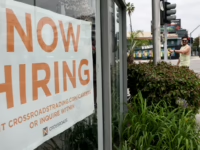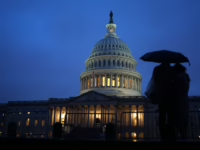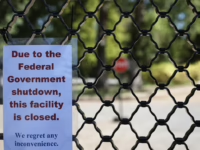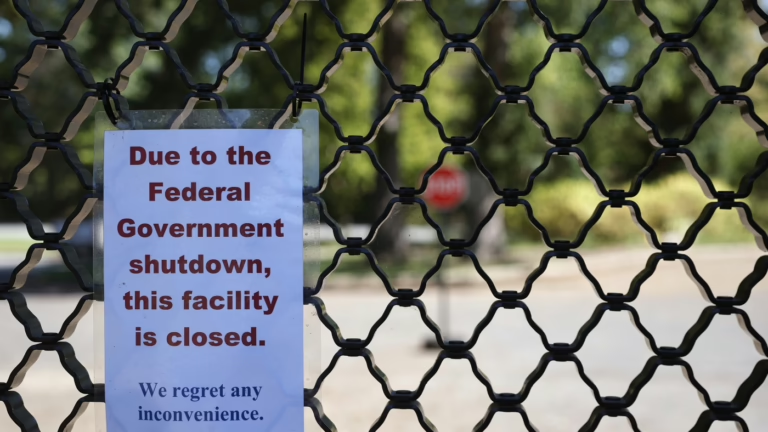A notice at the U.S. National Arboretum entrance indicating closure due to the federal government shutdown.
Kevin Dietsch/Getty Images
hide caption
toggle caption
Kevin Dietsch/Getty Images
Contrary to assertions from the White House and Republican lawmakers blaming Democrats for the federal government shutdown over efforts to expand health care access to undocumented immigrants, multiple independent analysts have debunked this narrative.
The dispute centers on the Trump administration’s Working Families Tax Cut Act, also referred to as President Trump’s “One Big Beautiful Bill,” enacted in July. Democrats argue that this legislation primarily benefits the ultra-wealthy through tax breaks while financing these giveaways by imposing significant cuts to Medicaid. Meanwhile, the White House maintains that the law safeguards taxpayers by blocking undocumented immigrants from receiving government-funded health care benefits-though these individuals were already excluded from Medicaid and the Affordable Care Act (ACA) marketplaces.
Leighton Ku, director of the Center for Health Policy Research at George Washington University, calls the Republican claims “a complete distortion” and “factually incorrect.”
As the fiscal year ended on October 1, Republicans proposed a continuing resolution to fund the government through November 21. Democrats, however, insisted on including extensions for ACA subsidies-set to expire at year’s end-and reversing Medicaid reductions.
Republicans have accused Democrats of leveraging the shutdown to push a “far-left agenda,” including funding health care for “illegal aliens.” The White House echoed this, stating their legislation ensures taxpayer dollars prioritize American citizens and do not subsidize health care for undocumented immigrants.
Jonathan Gruber, chair of the Economics Department at MIT, refutes this, emphasizing that undocumented residents are ineligible for Medicaid and ACA tax credits.
The Kaiser Family Foundation (KFF), a nonpartisan health policy research organization, clarifies that most U.S. health programs for immigrants are limited to those with lawful status. Medicaid and CHIP, which offers affordable coverage for uninsured children and pregnant women, are restricted to immigrants with “qualified” status, such as refugees and asylees, many of whom face a five-year waiting period before eligibility.
Similarly, subsidized ACA Marketplace plans are accessible to qualified immigrants, including those with Temporary Protected Status or certain work visas, while Medicaid eligibility is confined to lawfully present immigrants meeting specific criteria. Georgetown University’s Center for Children & Families has also verified these facts.
Some states do provide state-funded health care for certain undocumented individuals, but these programs are being scaled back. For instance, starting next year, California will discontinue Medi-Cal coverage for undocumented adults, though children will continue to receive care regardless of immigration status.
Gruber highlights that the shutdown is not about undocumented immigrants’ health care access but rather about reducing health insurance coverage for millions of low-income Americans.
The Congressional Budget Office projects that Medicaid and the Supplemental Nutrition Assistance Program (SNAP)-another Democratic priority-will face over $1 trillion in cuts over the next decade due to provisions in the One Big Beautiful Bill.
Ku points out confusion arises from how “undocumented” is defined. Republicans sometimes label individuals with legal protections-such as asylees, refugees, or those with Temporary Protected Status-as “illegal immigrants” simply because of political opposition.
While Emergency Medicaid technically covers undocumented individuals, it primarily functions as a safety net for hospitals, which are legally required to treat emergency patients regardless of immigration status. Medicaid helps hospitals offset these costs.
“Emergency Medicaid accounts for only a small fraction-one or two billion dollars-of a trillion-dollar program,” Ku explains. “This issue is being exaggerated far beyond its actual impact.”
Gruber notes that health care is inherently complex, making it easier for misleading claims to gain traction.
According to a recent NPR/PBS News/Marist poll, 38% of Americans hold Republicans responsible for the shutdown, 27% blame Democrats, and 31% attribute fault to both parties.
Gruber concludes that the Republican narrative about expanding health care to undocumented immigrants “sounds convincing and appeals to certain biases, but it simply does not reflect reality.”























